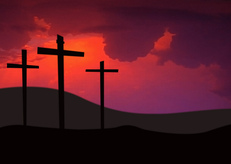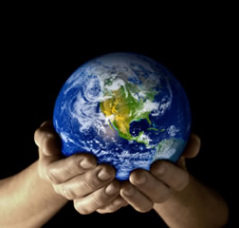Sins, Confessions, Repents
Our religion has a great affect on who we are, what we believe, and how we conduct ourselves in life. Depending on what religion you believe in, there are different customs when it comes to confessions and penance.
Christianity

Within the Catholic religion, penance is one of the sacraments instituted by Jesus Christ. Jesus Christ is the Holy Saviour, and is looked up to in a time of need. Many Catholics pray to Jesus during their confessions, to ask that He and God forgive them of their sins. Catholics are instructed to observe a weekly rite of confession. When confession occurs in a Catholic community, the priests goes inside a confessional booth that is divided into two. One side is where the priest is situated while the other side is where the sinner is seated. A sliding window or sometimes a mesh material is placed in between the two divided segments of the confessional booth, so the priest and the sinner are able to talk. Although a confessional booth is often used when the sinner confesses, often confessions are made face to face between the priest and the sinner. In the Catholic religion it is important to share your sins and secrets because when a sin has been committed, it deprives oneself of God’s grace. The only way out to mend your relationship with God, is to repent your sins and ask for God’s forgiveness. One prayer Catholics say during or after confession is called the Act of Contrition which is the following:
O my God, I am heartily sorry for having offended you and I detest all my sins, because I dread the loss of heaven and the pains of hell. But most of all because I have offended you, my God, who are all good and deserving of all my love. I firmly resolve with the help of your grace, to confess my sins, to do penance and to amend my life. Amen. This is generally said while kneeling in the church pews while covering their face with their hands. They are intently praying to God so that all sins may be forgiven.
O my God, I am heartily sorry for having offended you and I detest all my sins, because I dread the loss of heaven and the pains of hell. But most of all because I have offended you, my God, who are all good and deserving of all my love. I firmly resolve with the help of your grace, to confess my sins, to do penance and to amend my life. Amen. This is generally said while kneeling in the church pews while covering their face with their hands. They are intently praying to God so that all sins may be forgiven.
Buddhism
Within the Buddhist religion, the reason for confession is to experience remorse. The actions of confession allow the person to experience remorse and reflect on the consequences of their actions. People who practice Buddhism confess in hopes to restrain themselves in the future. They try to keep from repeating their sins and to gain knowledge so as to be a better overall person. Though when you practice confession, it does not in any way pardon one from responsibility for their actions, within the Buddhist faith an important aspect is to acknowledge our failures and to learn from them. Confession is necessary in the belief of the Buddhist process of learning from your mistakes. In all four of these religions, they all believe in repenting, confessing, or sharing their secrets in order to become closer with God. Each of these religions believes in doing good deeds and learning from your mistakes. From Israel to Italy, to India, we all have similar beliefs that encourage us to tell the truth and to do away with our secrets.
Judaism

In Judaism confession of sins is also a major part of the religion. There is a very holy Jewish holiday that is dedicated for confession. This Holiday is known as Yom Kippor. It requires fasting, a symbolic casting away of sins and repent through days of long services. There is a whole day of fasting to allow the sinner to repent and realize the mistakes the sinner has preformed that year. Along with fasting, there is a long confession called the “al chet” (for the sin) and the short alphabetic confession known as the vidui (confession). A sinner must give God verbal remorse, through services. This holiday starts on Rosh Hashanah, or the Jewish New Year. In order to start a new, fresh year, people have to repent for their sins of the previous year. When Yom Kippor occurs, usually a week or so after, it marks the end of repenting. During this holiday, not only does it require long services but a symbolic action called "tashleight". This action requires you to take bread and cast it into a body of water, representing the casting away of our sins. This holiday, which occurs once a year, is one of the holiest days in the Jewish religion.
Hinduism
In Hinduism, their purpose in life is to gradually achieve spiritual perfection, which is referred to as Divinity. Being devoted to your duties helps one achieve perfection. This is done by living your day-to-day life as sinlessly as possible, making each day count. When someone sins, or does not fulfill their duties, you will move farther from perfection. It will take yet another harsh life to get to the next Varna, or social class. Long ago, you did your Dharma (whatever your duties were in your social class) and by fufilling those duties, you created good Kharma. By getting good Kharma you would be able to move up into the next caste system and in your next life have it much easier. When you have fulfilled your life's purpose, you have reached Moksha. When you have reached Moksha you have become fully enlightened. You are one with God and can live with him. The sole basis of the Hindu religion is based upon performing good deeds. The idea of sins and being righteous helps persuade the actions of a believer in Hinduism. There sole purpose in life is to achieve perfection through good works.
Islam

In the Islamic religion, Shahada is the confession of faith. In the Islamic faith, Shahada is one of the five pillars. These five pillar consist of the Shahada (creed), daily prayers, fasting during Ramadan, almsgiving, and the pilgrimage to Mecca (hajj) . The First pillar, Shahada, is the act of seeking forgiveness from God. This is called "Istighfar". The confession of their sins is made directly to God and not through man, unlike in Christianity. They feel that God should hear your thoughts and prayers directly, as opposed to going through man, especially since he has his own sins to pray for. They typically pray for the intentions that they hold with their hearts. Going to Mecca is where they know that they can get their prayers directly to God and know that they will be forgiven. Forgiveness from a man can be given if - and only if - you have inflicted pain upon them. This is done so that you directly face the person you have hurt. It makes you feel a deeper appreciation for your fellow-human and more apologetic for your wrong-doing.
Resources:
Books:
Momen, Moojan. The Phenomenon of Religion: a Thematic Approach. Oxford, England: Oneworld, 1999. Print.
Boyer, Pascal. Religion Explained. London: Vintage, 2002. Print.
Websites:
Richert, Scott P. "The Sacrament of Confession - Why Catholics Go to Confession - Confession in the Catholic Church." Catholicism - Roman Catholicism - Roman Catholic Christianity. Web. 27 Apr. 2011. <http://catholicism.about.com/od/beliefsteachings/p/Why_Confession.htm>.
Zahid, Ishaq. "Five Pillars of Islam." Islam 101. Web. 27 Apr. 2011. http://www.islam101.com/dawah/pillars.html.
"Confession in Buddhism." Jayarava's Raves. 28 Feb. 2008. Web. 27 Apr. 2011. <http://jayarava.blogspot.com/2008/02/confession-in-buddhism.html>.
Jacobs, Rabbi Louis. "Confession (Vidui) - My Jewish Learning." Judaism & Jewish Life - My Jewish Learning. Web. 27 Apr. 2011. "A Guide for Confession - Prayers." Catholic Online. 2011. Web. 27 Apr. 2011. <http://www.catholic.org/prayers/confession.php>.
<http://www.myjewishlearning.com/holidays/Jewish_Holidays/Yom_Kippur/In_the_Community/Prayer_Services/Confession.shtml>."Sacred Connections: The 12-Steps as Applied to Hinduism: Confession." Sacred Connections: Unifying Principles of the 12 Steps of A.A. in the Wisdom Traditions. 2009. Web. 27 Apr. 2011. <http://www.12wisdomsteps.com/hinduism/05_confession.html>.World‑in‑black‑and‑white‑hand. Photograph.Http://brandstrategy.files.wordpress.com/2008/09/world-in-black-and-white-hands-1.jpg. Yasmeen. Web. 27 Apr. 2011. <http://here-are-my-thoughts.blogspot.com/>.
Books:
Momen, Moojan. The Phenomenon of Religion: a Thematic Approach. Oxford, England: Oneworld, 1999. Print.
Boyer, Pascal. Religion Explained. London: Vintage, 2002. Print.
Websites:
Richert, Scott P. "The Sacrament of Confession - Why Catholics Go to Confession - Confession in the Catholic Church." Catholicism - Roman Catholicism - Roman Catholic Christianity. Web. 27 Apr. 2011. <http://catholicism.about.com/od/beliefsteachings/p/Why_Confession.htm>.
Zahid, Ishaq. "Five Pillars of Islam." Islam 101. Web. 27 Apr. 2011. http://www.islam101.com/dawah/pillars.html.
"Confession in Buddhism." Jayarava's Raves. 28 Feb. 2008. Web. 27 Apr. 2011. <http://jayarava.blogspot.com/2008/02/confession-in-buddhism.html>.
Jacobs, Rabbi Louis. "Confession (Vidui) - My Jewish Learning." Judaism & Jewish Life - My Jewish Learning. Web. 27 Apr. 2011. "A Guide for Confession - Prayers." Catholic Online. 2011. Web. 27 Apr. 2011. <http://www.catholic.org/prayers/confession.php>.
<http://www.myjewishlearning.com/holidays/Jewish_Holidays/Yom_Kippur/In_the_Community/Prayer_Services/Confession.shtml>."Sacred Connections: The 12-Steps as Applied to Hinduism: Confession." Sacred Connections: Unifying Principles of the 12 Steps of A.A. in the Wisdom Traditions. 2009. Web. 27 Apr. 2011. <http://www.12wisdomsteps.com/hinduism/05_confession.html>.World‑in‑black‑and‑white‑hand. Photograph.Http://brandstrategy.files.wordpress.com/2008/09/world-in-black-and-white-hands-1.jpg. Yasmeen. Web. 27 Apr. 2011. <http://here-are-my-thoughts.blogspot.com/>.

